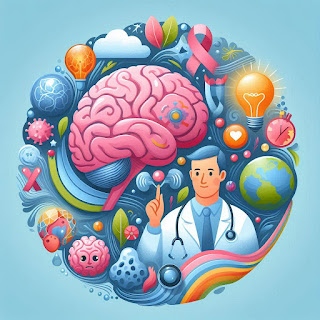Celebrating World Brain Day: Nurturing Your Brain for Optimal Health

Celebrating World Brain Day Nurturing Your Brain for Optimal Health Every year on July 22nd, we celebrate World Brain Day, an event dedicated to raising awareness about brain health and the importance of taking care of this vital organ. This year’s theme focuses on the power of knowledge and action in maintaining and improving brain health. Let's explore how you can nurture your brain for optimal health and the foods that can help support this mission. Understanding Brain Health The brain is the control center of your body, responsible for your thoughts, memories, movements, and emotions. Keeping it healthy is crucial for overall well-being and quality of life. Factors such as lifestyle choices, diet, physical activity, and mental stimulation play significant roles in brain health. By making informed decisions, you can enhance your brain's function and protect it against age-related decline and neurological diseases. Top Tips for Maintaining Good ...









